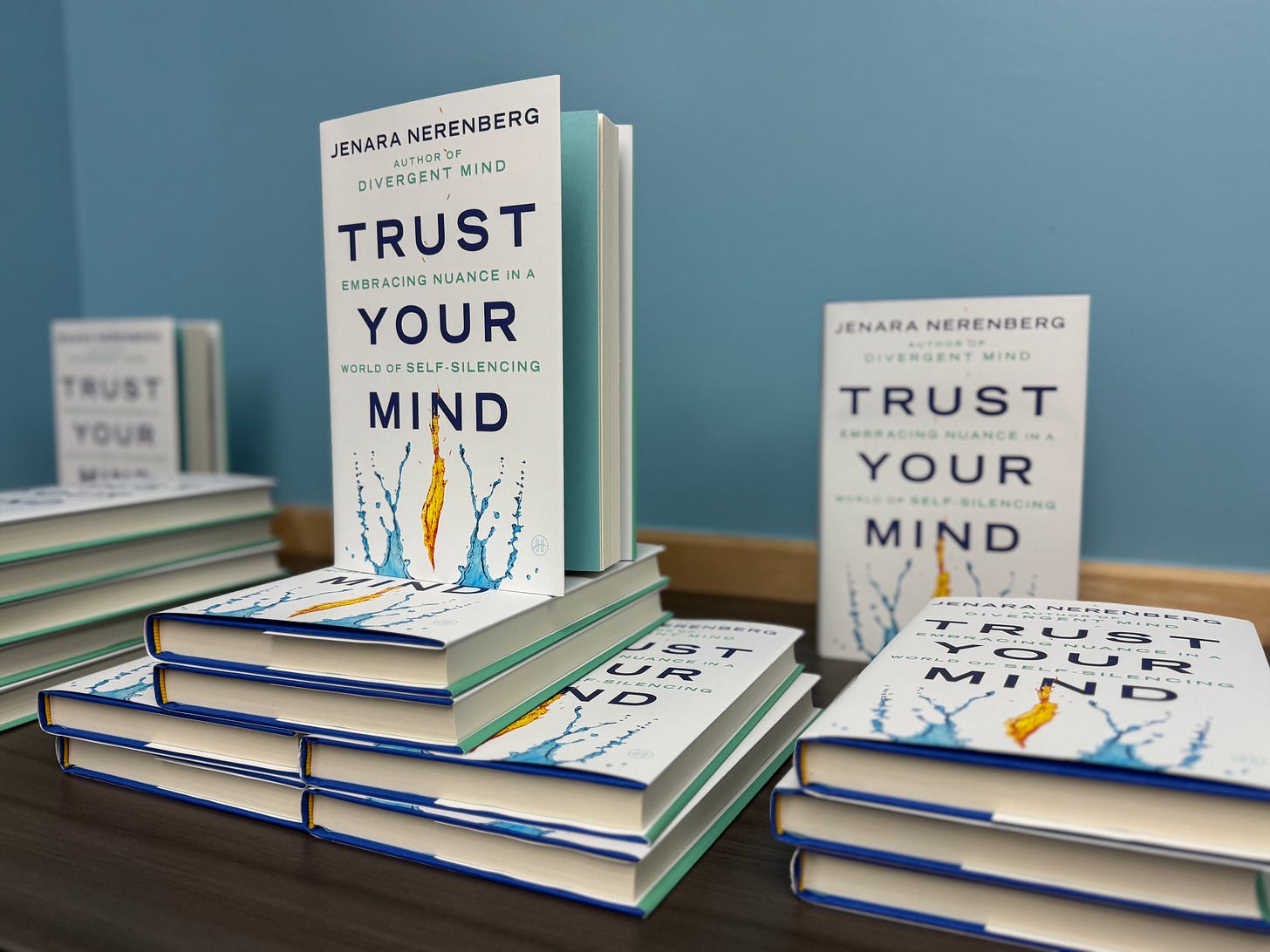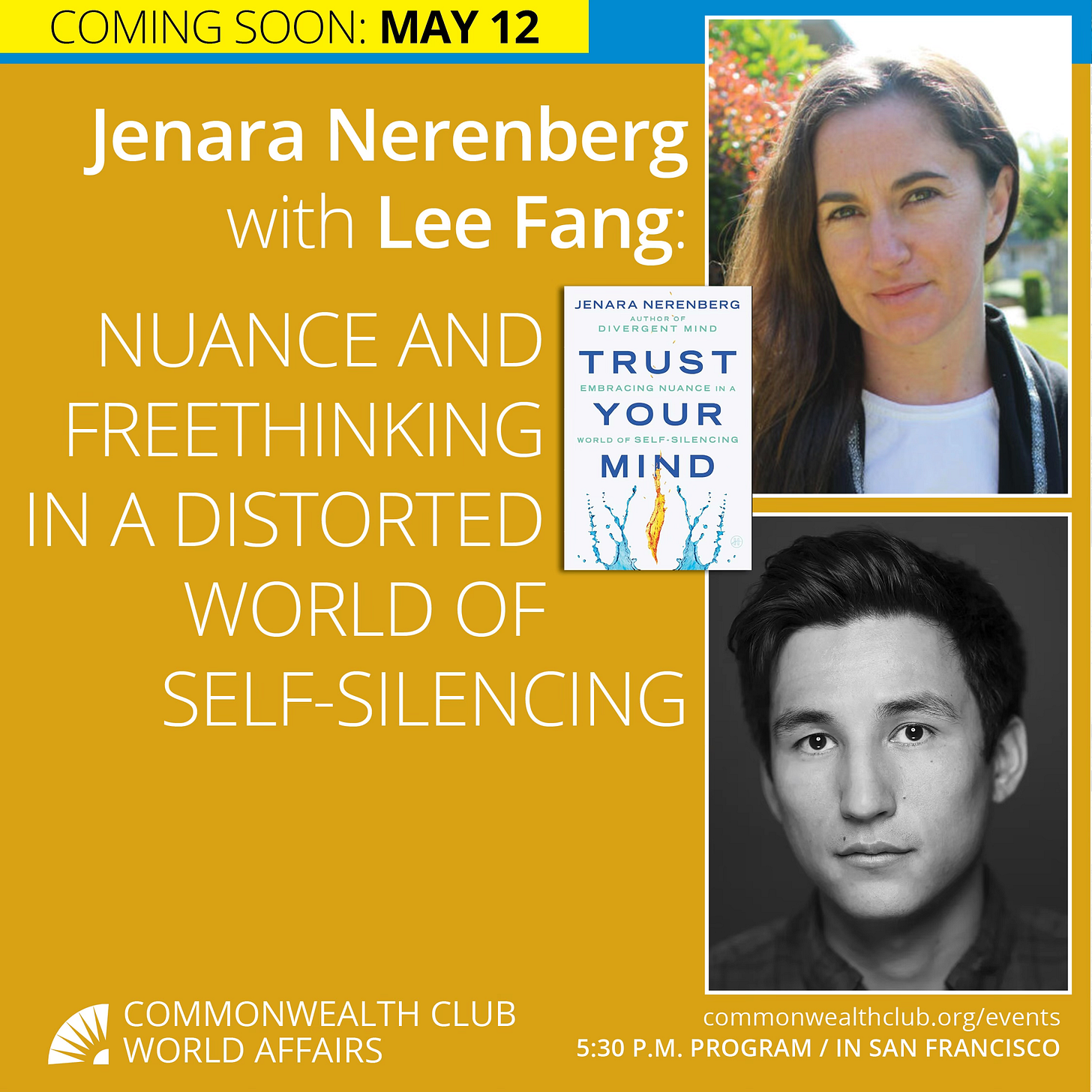On Constructive Deviance
What is a "reactionary" anyway?
I often stare and watch people from afar, laser-focused, and in my mind it feels like the glances, gestures, behaviors and facial expressions people exchange are buzzing darts of information, like little bees flying around. As a child I felt fascination watching all of this. As I got older, and the world became more complex, my feelings often turned to disappointment. Groups can shine a light on the great beauty of human nature, but they can also thwart individual values and intentions. Today, my fascination is still there, but it’s more cautious. Reserved. Private. I used to think that everyone would *love* to name and understand the invisible layers of human interaction, until I realized—in early adulthood, as a college student surrounded by endless groups—that people prefer easy group belonging over acute, nuanced understanding.
I’m speaking to the choir here; most of you are heterodox dare devils or neurodivergent savants or reclusive hermits or some combination of the above. You’ve probably felt, at times, like you could see things—patterns, behaviors—that others in the group couldn’t (or wouldn’t). With awareness comes questions: should I say something? Do others notice this? Should I talk to someone? Is this weird? WHY DOES EVERYTHING FEEL SO STRANGE?
Group dissenters often notice and name phenomenon before others. They shout, they point things out, and groups resist. What seems obvious to the dissenter is invisible to the group — for a time. Given the time lag, what’s a constructive deviant to do?
We see this occur in many areas of life; scientists and researchers identify something decades before the public and officials will accept the information. A co-worker points out behavior for months before a team’s bullying behavior is finally named. Cancel culture and fragile egos go unchecked for years before the pendulum swings in the opposite direction.
In a new adapted essay from Trust Your Mind, I write about being a “constructive dissenter” to explain all this, touring through moral rebellion and positive deviance to patriotism and more.
Xavier Bonilla, a clinical psychologist and host of the Converging Dialogues podcast, recently had me on his show to discuss similar themes — getting into the weeds about human behavior in this political moment feels like a wise course of action. At the MIT event this week, that’s exactly what we did as well — we talked about behavioral observations, tying in personal reflection on emotion and feeling.
If you’re in the San Francisco Bay Area, don’t forget that the west coast launch of Trust Your Mind is in a few days on Monday, May 12th at 5:30pm at the Commonwealth Club World Affairs, hosted by journalist Lee Fang — it’s almost full but you can still grab tickets here.
Thank you all for your support of Trust Your Mind — I love knowing the book is finally in your hands. The three categories it rose to this week on Amazon is not lost on me, either :-) Speaking of Amazon, I hope you’ll leave a review as it means so much and helps spread the word. (You can also listen to the audiobook or, of course, get the ebook.)
Look forward to seeing you on the road,
Jenara





